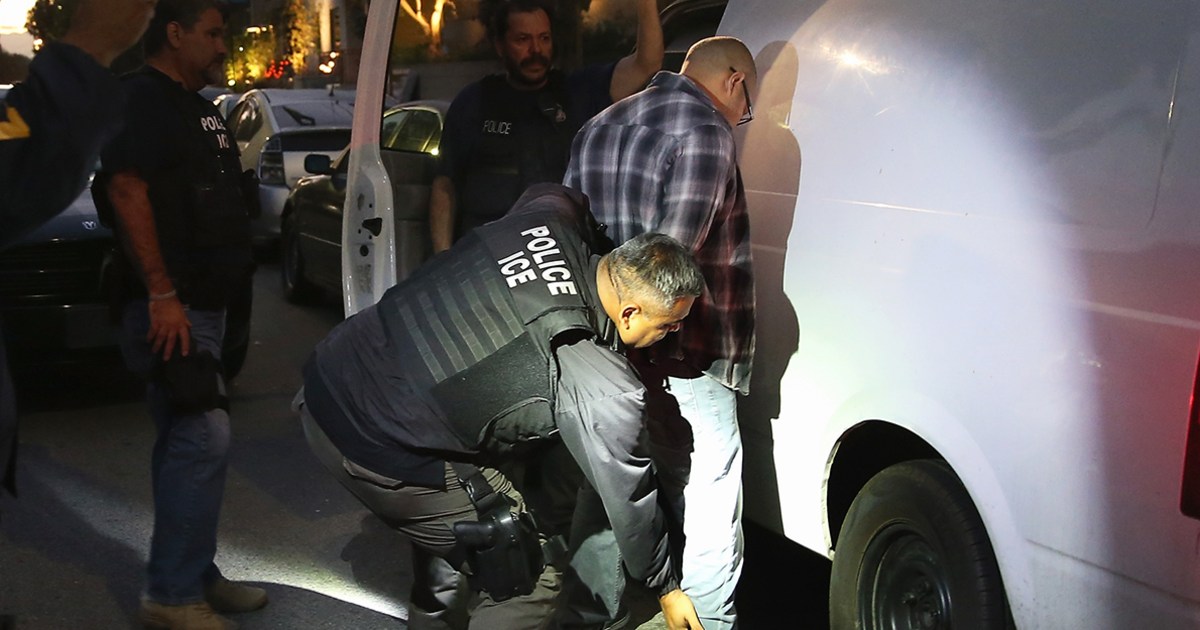“`html

DBUNK Fact Check Analysis: Trump Plans to Scrap Policy Restricting ICE Arrests at Churches, Schools, Hospitals
Submitted by a diligent DBUNK subscriber, this fact check request exemplifies the skepticism many of our users share when confronted with potentially impactful news. They, like you, find clarity amidst confusion essential in today’s polarized media landscape. Did this article accurately portray the facts or did it skew the narrative? Let’s break it down.
The article from NBC News, published on December 11, 2024, claims that incoming President Donald Trump plans to eliminate the policy restricting Immigration and Customs Enforcement (ICE) arrests in sensitive locations, such as schools, hospitals, and churches. The piece also speculates about the consequences of such a move. While the article provides a significant amount of detail and context, there are areas of misrepresentation, missing context, and bias that require scrutiny.
1. Is the Claim Supported by Evidence?
The central claim—that the Trump administration intends to rescind the sensitive locations policy—is based entirely on anonymous sources described as “familiar with the plan.” While anonymous sources are a legitimate journalistic tool, their reliability is inherently difficult to confirm, and no official policy documents were cited to substantiate the claim. Consequently, readers should remain cautious unless the administration officially announces such a decision. This reliance on unnamed sources raises transparency concerns for a story with significant societal implications.
Moreover, the article implies an imminent action (“as soon as the first day he is in office”), a detail that further contributes to sensationalism and urgency without solid documentation. The claim is plausible, given similar proposals in Project 2025 by the Heritage Foundation, but without confirmation from Trump or his transition team, it remains speculative.

2. Historical and Legal Context: Missing Clarity
The sensitive locations policy was implemented in 2011 under President Obama and remained intact through Trump’s first term (2017-2021) and Biden’s administration. During Trump’s first term, the policy allowed for planned and exigent ICE operations but required supervisory approval. The article cites data from ICE, noting at least 63 planned arrests and 5 exigent cases, but does not clarify whether these numbers are significant or typical, leaving readers without proper context to assess the impact of existing restrictions.
Additionally, the article suggests the changes would grant ICE the ability to arrest people freely in “sensitive locations,” but this omits critical details about procedural safeguards still likely to guide ICE operations. Even without the sensitive locations policy, broader enforcement would still be subject to certain protocols, such as Fourth Amendment protections against unreasonable searches and seizures. Leaving this context out makes the potential changes seem more drastic than they might actually be.

3. Bias in Sources and Narrative Framing
The article heavily relies on voices critical of the proposed policy change, such as church leaders, ACLU representatives, and a faith-based organization’s data. While these perspectives are important, the article provides only a single former DHS official backing ICE’s operational concerns. By failing to fairly represent all viewpoints, including those supportive of enforcement flexibility, the article leans toward an anti-policy-change stance. This creates a perception of bias that undercuts its journalistic neutrality.
Furthermore, language choices like “harassment” and “backlash” amplify reader emotions, steering the narrative toward hyperbolic conclusions. For example, the suggestion that ICE may make arrests “even inside schools and houses of worship” lacks confirmation and borders on fearmongering.

4. Responding to User Questions
Several DBUNK users have posed questions about the legality and morality of enforcing immigration laws in sensitive locations. For example, one user asked, “If they are illegals in the country, why shouldn’t they be arrested no matter where they are?”
Here’s the answer: ICE already has limited authority to make arrests under specific critical circumstances in these locations. The sensitive locations policy introduced additional safeguards to prioritize public safety and humane enforcement. For instance, arresting undocumented immigrants at hospitals may discourage individuals from seeking medical care, exacerbating public health risks. Similarly, enforcing arrests at schools could disrupt children’s education and create widespread fear in communities.
Another consideration is legal precedent. Arrests in places like churches could raise constitutional issues under the First Amendment, which protects religious freedom. Such locations often serve as sanctuaries due to their historical role in offering refuge.
Conclusion
The NBC article raises important concerns about the potential rollback of the sensitive locations enforcement policy, but its use of anonymous sources, lack of balanced perspectives, and omission of legal and procedural safeguards leave it short of fully accurate reporting. Speculation about a policy change is valid but must be framed with greater clarity and corroborated evidence.
While the potential policy shift under Trump warrants careful attention, readers should approach this article critically, considering the missing context and inherent bias. To stay informed with unbiased, evidence-based insights into such complex stories, download the DBUNK app, launching soon.
Your partner in fighting misinformation—DBUNK: bringing the truth to light.
“`

